The third member of the Class of 2017 is Canadian Joe Sakic, whose international resume begins with the 1988 World Junior Championships, where Canada went 6-0-1 to win the gold medal.
Sakic making his Olympic debut in 1998
Sakic appeared at his first World Championships in 1991, leading Canada with 6 goals and 11 points in 10 games on the way to a silver medal.
His next World Championships came in 1994 where Sakic was third in team scoring with 4 goals and 7 points in 8 games as Canada would go 8-0 to win their first gold medal in 33 years following a shootout in the final.
The next time Sakic would wear the maple leaf for Canada was at the 1996 World Cup of Hockey, where the Canadians would finish second.
Sakic's first Olympic Games came in 1998 followed by winning gold in his second Olympics in 2002 in Salt Lake City, Utah. After going 1-1-1 in group play, the Canadians would find their game with Final Round wins over Finland, Belarus and the host United States as Sakic was named the tournament's MVP.
Sakic's gold medal at the 2002 Olympics gained him entry into the exclusive Triple Gold Club for players who have won World Championship gold, Olympic gold and the Stanley Cup, which he accomplished with the Colorado Avalanche in 1996 and 2001.
He would add to his already impressive resume by winning the 2004 World Cup of Hockey, where he tied for second place in scoring with 4 goals and 6 points in 6 games.
After being an assistant captain for the 1998 and 2002 Canadian Olympic teams, Sakic was chosen to captain Canada for his final international tournament, the 2006 Olympics in Torino, Italy.
In all, Sakic played in 48 international games at the senior level, scoring 22 goals and 41 points.
While his World Championship opportunities were limited by the successful teams he was a part of during his 20 year NHL career, 17 of which were as captain of the Quebec Nordiques and Avalanche, he is record is a stellar one, with gold medals at the World Juniors, World Championships and Olympics along with a World Cup and two Stanley Cups.
Today's featured Sakic jersey is a 1994 Canada National Team Joe Sakic jersey as worn during the 1994 World Championships during which Canada ended their 33 year World Championship drought.
The jersey is a Finnish made by Tackla, but branded as a Reebok jersey The jersey was produced using the dye sublimation process, in which all the graphics are created by injecting ink into the fabric, which is then cured with heat. This jersey also sports a pair of Warsteiner Beer sponsorship logos, giving the jersey it's unique World Championships look, as jerseys worn during the Olympics are free from advertising.
This multi-striped style was a short-lived one and used only for the 1994 and 1995 World Championships, as Nike arrived on the scene with all new designs for the 1996 World Championships.
The fourth member of this year's IIHF Hall of Fame Class Koivu's fellow Finn, Teemu Selanne. The Finnish Flash made his international debut at the 1988 European U18 Junior Championships, where he led all players in scoring with a dominating 7 goals and 16 points in just six games as Finland won the silver medal.
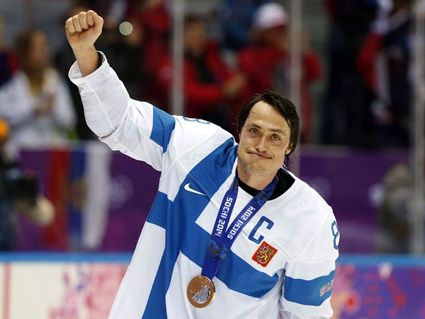 Selanne went out in style, winning a medal and being
Selanne went out in style, winning a medal and being
named the tournament MVP at the 2014 Olympics
Selanne played in one U20 World Junior Championship in 1989, tying for the team lead with 10 points in 7 games.
He made his debut at the senior level at the 1991 World Championships, finishing one assist back of Jari Kurri for the team lead in points. Later that fall, Selanne was a member of the Finnish team at the 1991 Canada Cup.
Selanne made his Olympic debut at the 1992 Games in Albertville, France, coming in fourth in tournament scoring while leading the Finns with 7 goals and 11 points in 8 games.
In 1996, he returned to the World Championships, where he led Finland in scoring with 5 goals and 8 points in 8 games. Later that year, he played in the inaugural 1996 World Cup of Hockey as Finland's assistant captain.
He earned the second medal of his career at the 1998 Olympics, bringing back a bronze after leading all scorers with 4 goals and 10 points while playing in just 5 games compared to as many as 7 for other players.
Selanne came in second in scoring to Koivu at the 1999 World Championships with 3 goals and 11 points back of Koivu's 16, but it was Selanne who took home the tournament MVP honors while winning a silver medal.
In 2002, he played in the Olympic Games in Salt Lake City, scoring 3 goals in 4 games. He led Finland in scoring at the 2003 World Championships with 8 goals and 11 points in seven games as team captain for the Finns.
Selanne then took part in the 2004 World Cup of Hockey before returning to the Olympics in 2006, leading all players in goals, with 6, and points, with 11, as Finland finished with the silver medal and Selanne was named as the Top Forward.
He came home with a bronze medal at the 2008 World Championships after coming in second in scoring with 7 points in 9 games.
After playing at the 2010 Olympics in Vancouver, British Columbia and winning a bronze medal, Selanne participated internationally one final time, this coming at 2014 Olympic Games in Sochi, Russia, where he won a bronze medal as Finland's team captain. His 4 goals and 6 points were one point back of the team leader as the Finns would win their third consecutive Olympic medal, this time a bronze, the fourth Olympic medal of Selanne's illustrious national career as he set a record as the oldest player to ever win a medal in Olympic hockey at the age of 43. Selanne was then named the tournament's Most Valuable Player.
Selanne concluded his international career with 96 games played, scoring 54 goals and 102 points and holds the record for the most points in Olympic hockey competition with 24 goals and 43 points in 37 games.
Today's featured Selanne jersey is a 2014 Finland National Team Teemu Selanne jersey as worn during his final international tournament, the 2014 Olympics, his sixth Olympic Games.
This highly unusual full bleed flag style was worn only at the 2014 Olympic Games in Sochi, Russia. It was paired with a more conventional road blue jersey. For the subsequent World Championships later that spring, the Finns wore a white version of their blue road jersey, ending the use of this style after just one outing.
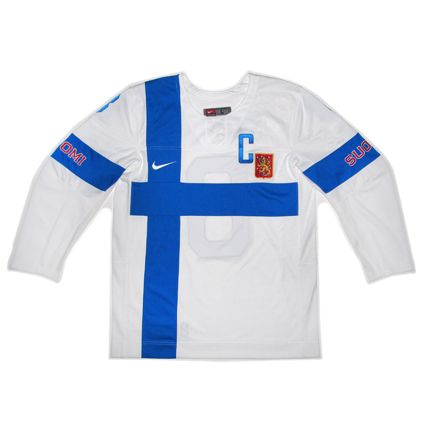
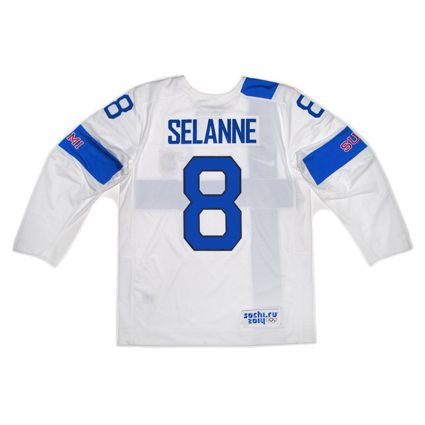
The final player inducted into the IIHF Hall of Fame this year was American Angela Ruggiero, who played in ten IIHF Women's World Championships, winning four gold medals and six silver medals, including scoring the winning goal in a shootout in 2005 to give the United States its first gold medal.
Ruggiero also participated in four Olympic Games, winning gold in 1998 as the youngest member of the team at 17 years of age, and winning silver in 2002 and 2010 and a bronze in 2006.
In 2004, she won the Patty Kazmaier Award as the top player in US Women's College Hockey. She became the fourth woman to ever be inducted into the Hockey Hall of Fame in 2015 and the only inductee ever from California. She is also the all-time leader in games played for the United States, regardless of gender, with 256.
Angela Ruggiero
Dieter Kalt, Sr. of Austria was inducted into the Builders category. A star player in the Austrian league in the 1960's, he won five championships in six seasons with Klagenfurt with a career that spanned from 1957 to 1980. He played for Austria in eight World Championships and two Olympics, in 1964 and 1968, the second time as the team captain.
From 1996 to 2016, Kalt was the President of the Austrian Ice Hockey Federation and has been a long time member of the Austrian Olympic Committee.
Dieter Kalt, Sr.
Finally, the winner of the Bibi Torriani Award for players who have had great international careers from nations outside of the top hockey nations was Tony Hand of Great Britain. Four times during his domestic career in the British Hockey League, Hand had seasons of over 200 points, with a high of 222 points from 72 goals and 150 assists in a 44 game season!
British scoring legend Tony Hand
In addition to his scoring exploits of 15 seasons of over 100 points, longevity was also a hallmark of Hand's career, as he played 32 seasons of British domestic hockey in a career that spanned from 1981-82 as a 14 year old to the 2014-15 season, when he retired at the age of 47. So impressive was Hand's abilities, that he was drafted by the Edmonton Oilers in 1986, the first British-trained player ever selected in the NHL Draft.
He played for Great Britain at the World Championships 10 times, the World Juniors 3 times and the European U18 Junior Championships 4 times. At the senior level, he played in 52 games, scoring 34 goals and 105 points.
In 2004, Hand became the first ice hockey player ever honored with the Member of the Order of the British Empire by Queen Elizabeth II.


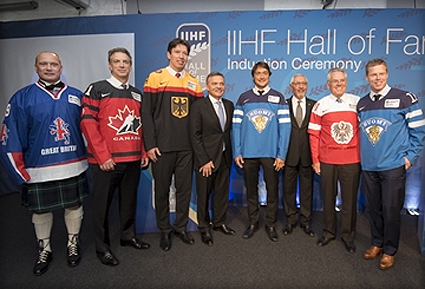
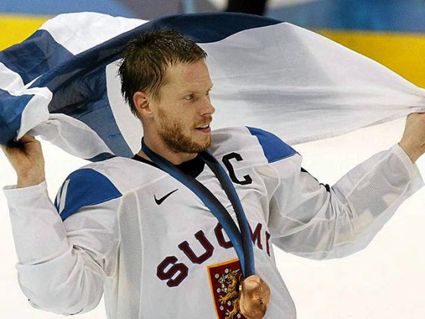
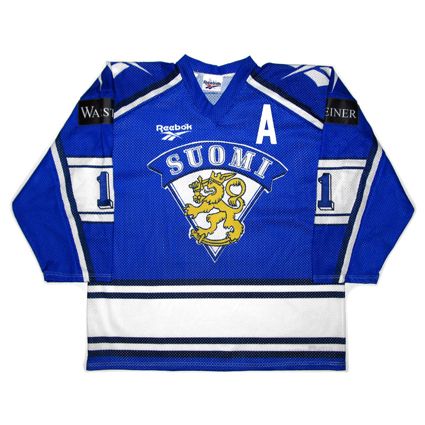
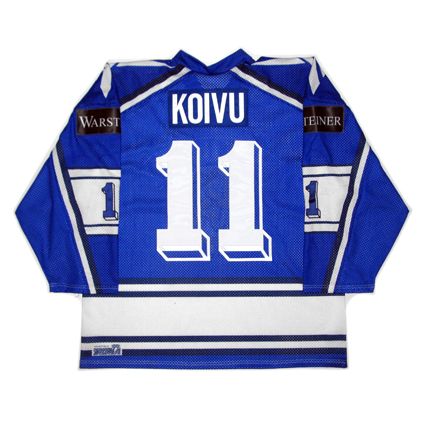
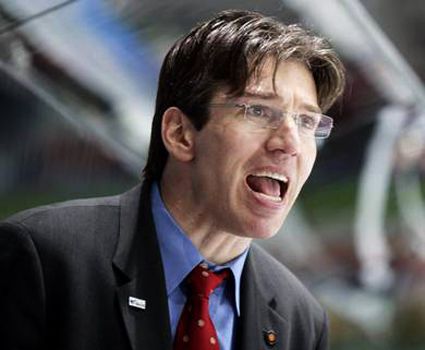
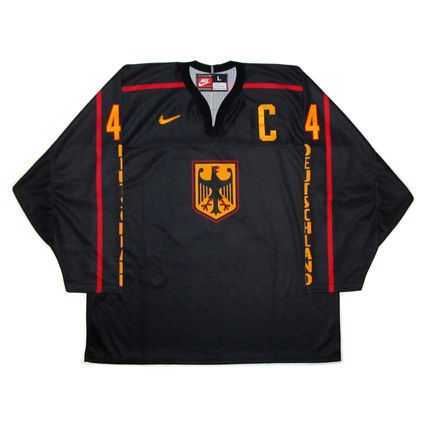
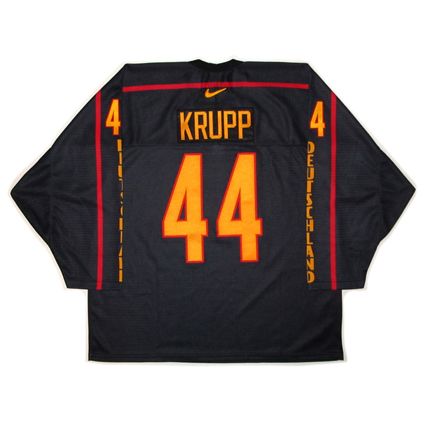
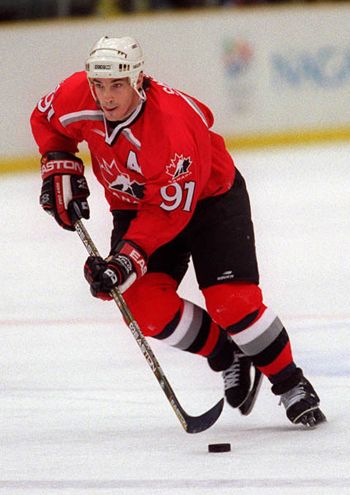
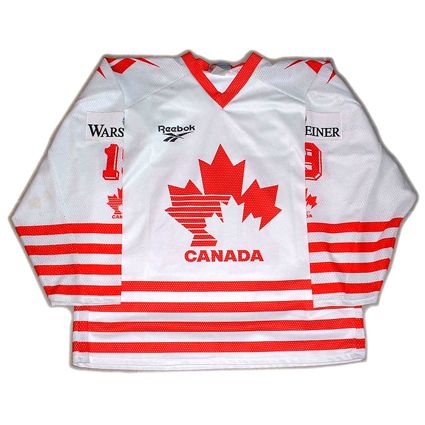
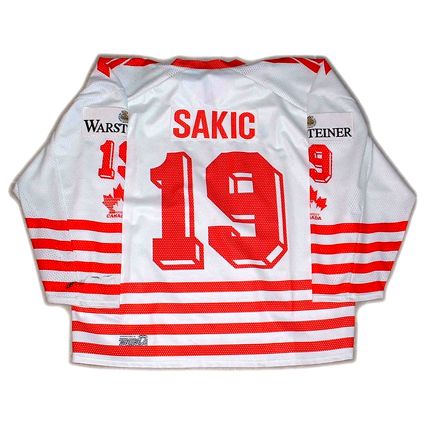


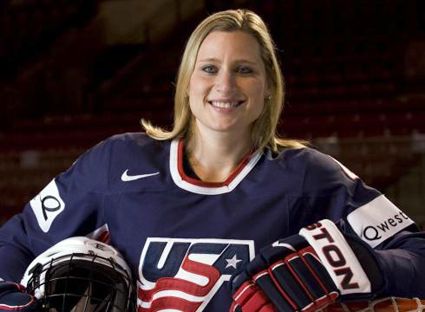
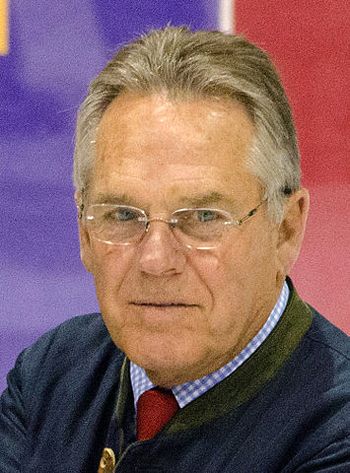
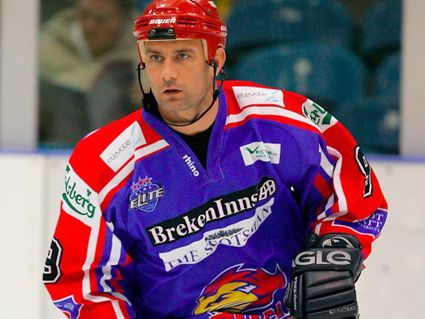










No comments:
Post a Comment
We welcome and encourage genuine comments and corrections from our readers. Please no spam. It will not be approved and never seen.